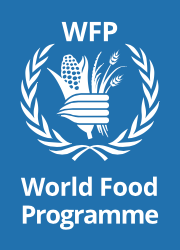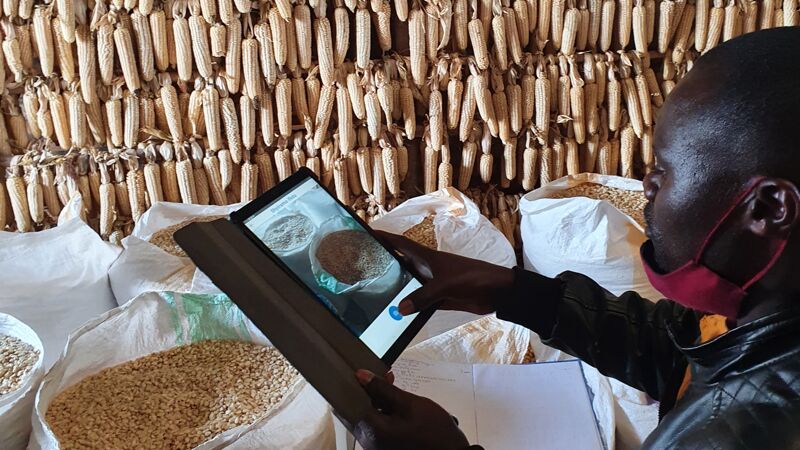Farm2Go: WFP’s digital solution to support smallholder farmer programme activities
How does Farm2Go work?
The solution connects smallholder farmers to new markets, giving them an increased chance to earn a better price for their commodities. The mobile application for Aggregators streamlines their operations, allowing them to register farmers, collect deposits, and keep track of stock, all while working offline in remote areas. The web application for Traders provides a platform for viewing available stock and negotiating offers with Aggregators, resulting in improved business relationships. Smallholder farmers receive SMS notifications on all system activities, ensuring transparency and accountability in the value chain.
How does Farm2Go support women smallholder farmers?
Smallholder farmer identities are kept anonymous in the digital marketplace – the Traders will only see the produce and can only negotiate the commodity price, quantity and time & location for exchange. This combats the discrimination women farmers often experience at their local market places. A recent BBC podcast summarised the benefits for women farmers in Cox’s Bazar, Bangladesh.
What is the adoption of Farm2Go?
The solution is being implemented in Mozambique, Rwanda, Bangladesh and the Philippines. The ambition is to implement this solution in all 50 countries where WFP support smallholder farmer programme activities.
In the past month (October to November 2023), there were 430 farmer profiles registered of which 261 (60.7%) were women farmers.
Data that informs WFP can use the data collected through Farm2Go to inform and improve our smallholder farmer programme activities. The information gathered on market access, prices, and capacity-strengthening activities are presented in dashboards and indicators for ease of interpretation.
Moreover, WFP can use Farm2Go to share capacity-strengthening information with Aggregators, which they can use to train their farmers.
With Farm2Go, we have the opportunity to create a more connected, sustainable, and equitable future for smallholder farmers.

